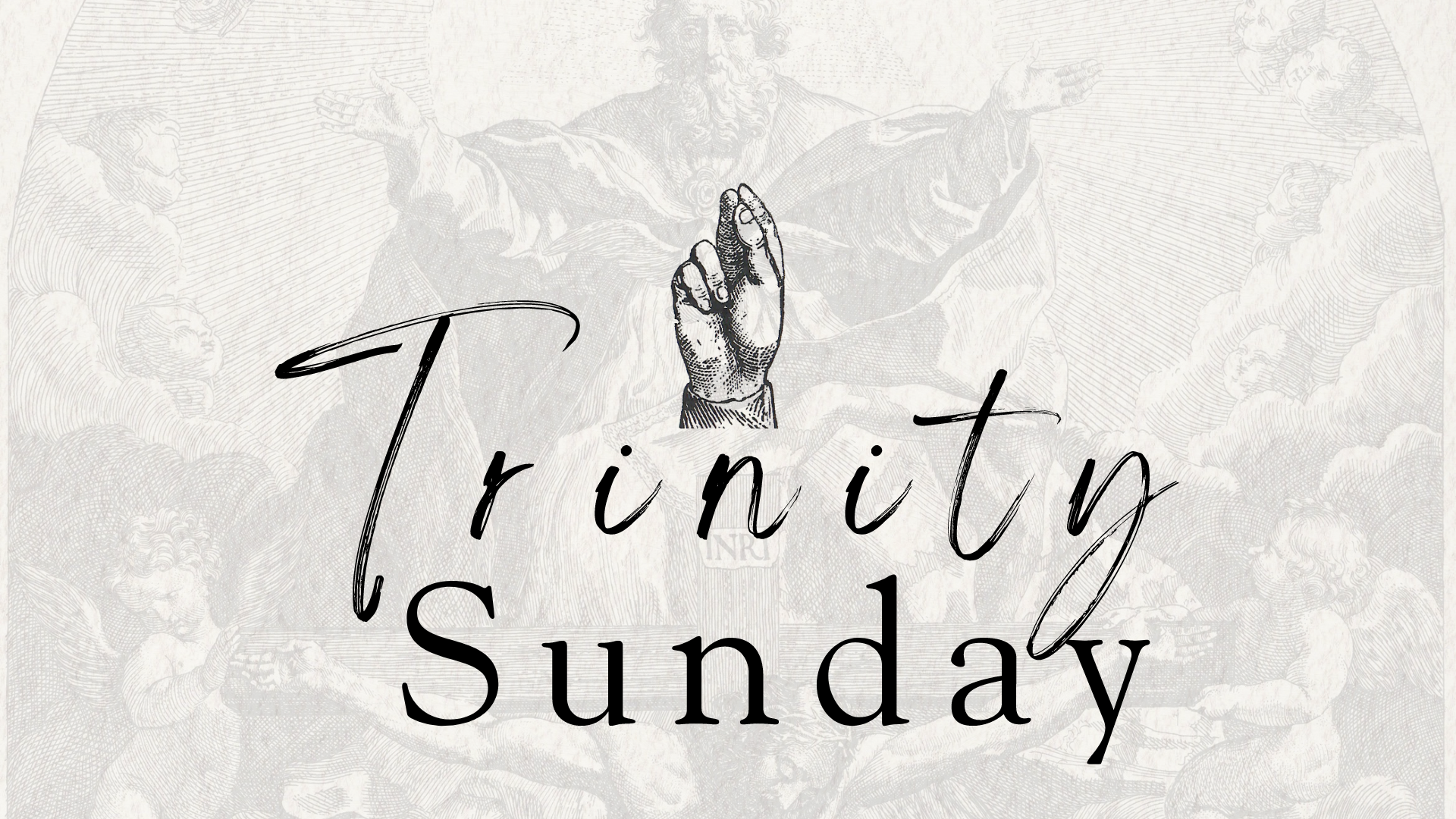
Matthew 28:19
Baptizing them in the name of the Father, and of the Son, and of the Holy Spirit
Readings for Trinity Sunday: Deuteronomy, Romans, Matthew
Reflection:
The Trinity—God the Father, God the Son, and God the Holy Spirit—is a profound mystery that reveals the very nature of God as love. When we say “God is love,” we are not just describing an attribute of God but expressing His fundamental essence.
One key to understanding the Trinity is the concept of personhood. In contemporary language, “person” typically refers to an individual human. However, in theology, it refers to identity, “who” someone is, not “what.” Angels are not humans, yet each is a person. Furthermore, while Jesus is simultaneously God and man, he is not two different persons. Jesus is not a divine person and a human person. Who is Jesus? He is the Son, the second person of the Trinity; he is a divine person. As such, he has always been God, yet, he added a human nature or human existence to himself, one day in time.
Thus, Jesus is one person, the divine person of the Son, who exists two ways at the same time: as God and as man. Jesus is not a human person; he is a divine person. Personhood and nature, as in human nature, are two different things. Furthermore, we distinguish person from personality. While Jesus is a divine person (answering the question of “who” did all that), he is still 100% human, and thus still has a human personality. Personality pertains to what we like or dislike, what we find funny or the foods we like.
Because “person” does not mean individual existing human, or even individual existing god, we can appreciate the Trinity. We believe in one God who is simultaneously three persons. This is what it means to say that “God is Love.” Love is what God is, not merely what he does. He is love within himself. Since love requires at least two persons, we can appreciate that God is the relationship of the Father and the Son, which is their Holy Spirit. The word in the Bible to describe God as “love” is agape; it means self-emptying, self-giving. As such, God is love; God is the Father, who gives himself and his existence 100% to the Son. The Son received the Father’s very being, and gives it back as love to the Father. The Father and Son share one existence. The bond of love they share, the existence they share is the Holy Spirit. The Son is 100% God as the Father is 100% God, it is just he is a different person, a different identity.
This self-giving love is at the core of God’s nature and is also the basis of our salvation. Reflecting on the Trinity challenges us to reevaluate our understanding of love and personhood, inviting us into a deeper relationship with God.
Reflection Questions
- How can you incorporate the understanding of the Trinity as a model of self-emptying love into your daily life?
- Reflect on a moment when you experienced self-giving love. How does this reflect the nature of the Trinity?
- Spend some time in prayer, thanking each person of the Trinity for their role in your life and asking for a deeper understanding of their love for you.
